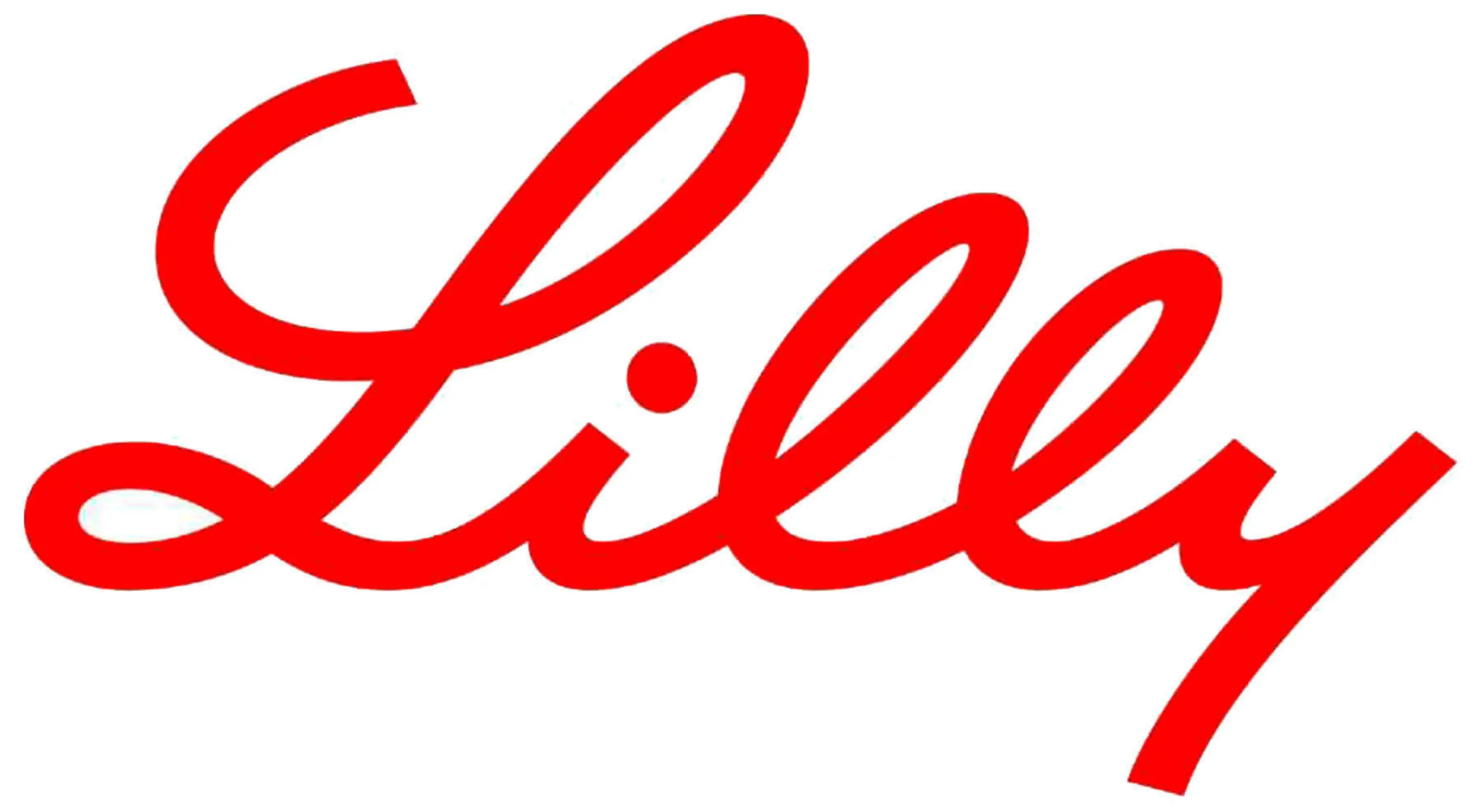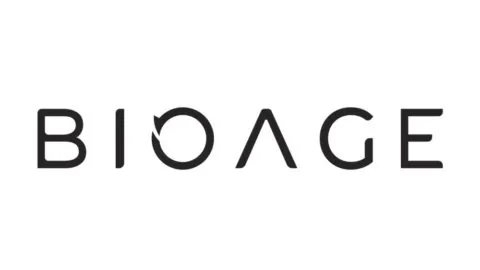
Organization Description
Eli Lilly and Company is a multinational pharmaceutical company, and the most valuable company in its sector globally. with a nearly $US$800 billion market capitalization — nearly as large as its two closest competitors combined. Although Lilly has a large and diverse portfolio and does not identify as a longevity therapeutics company, it has the distinction of having FDA-approved damage-repair longevity therapeutics in its portfolio.
Additionally, Lilly has several partnerships with BioAge Labs, and participated in an October 2025 funding round with reprogramming longbio company NewLimit that is intended “to set the stage for [NewLimit’s] first clinical study in a few years.”
Donanemab
Donanemab (brand name Kisunla) is a monoclonal antibody that removes N-truncated pyroglutamate beta-amyloid. It is one of the first FDA-approved drugs that modifies (slows) the course of Alzheimer’s disease (AD) rather than providing only symptomatic relief. In addition to directly clearing beta-amyloid, donanemab treatment reduces downstream damage and abnormalities. These include a reduction in CSF levels of ptau-217, a damaged species of tau that predicts future risk of AD in people cognitively “normal” for their age and the course of the disease in those suffering from it. Additionally, donanemab lowers the number of reactive astrocytes in the brain.
Although the effect on the course of AD is modest, secondary analyses demonstrate that donanemab is more effective the earlier in the course of the disease it is initiated.
In a a late-breaking presentation at the Alzheimer’s Association International Conference (AAIC) presentation in Toronto, Lilly presented the results of the long-term extension study of the Phase III TRAILBLAZER-ALZ 2 trial. In this study, subjects originally assigned to donanemab continued on the drug whenever their beta-amyloid level exceeded a predefined threshold, while subjects who had originally received placebo were offered the option to switch to the donanemab protocol. All subjects treated with donanemab enjoyed a benefit, but subjects who had been on the therapeutic antibody throughout enjoyed significantly reduced risk of progression to the next stage compared to the original placebo group. The benefits of donanemab continued to grow over the three years of the combined trial plus extension study compared to matched natural history controls. Additionally, when people reached their prespecified minimum beta-amyloid plaque burden and were switched to placebo, amyloid only returned very slowly, consistent with prior observational data in untreated subjects and with modeling, and no new safety signals were observed.
In July 2025, Lilly announced that FDA had approved an update to donanemab’s label with a modified dose-titration dosing schedule, based on the results of the TRAILBLAZER-ALZ 6 trial. This trial showed that the modified schedule lowered the incidence of amyloid-related imaging abnormalities with edema (ARIA-E), the most worrisome adverse effect of donanemab, from 25% in persons who were administered the original dosing regimen at the one year mark to 16% who were administered the modified titration, while achieving similar clearance of amyloid plaque and reductions in ptau217 (a biomarker of aberrant tau that strongly correlates with disease risk and progression).
In May 2025, Eli Lilly announced that Australia’s Therapeutic Goods Administration (TGA) approved donanemab for treatment of “mild” cognitive impairment (MCI) or or mild caused by Alzheimer’s dementia in ApoE ε4 non-carriers and persons with a single copy of the variant. In July 2025, the European Medicine Agency (EMA)’s advisory committee reversed a prior opinion and recommended approval of donanemab to be used in ApoE4 non-carriers or carriers of a single copy. FDA has not placed genotypic restrictions on the therapy.
Donanemab (and lecanemab) are not available on the UK’s National Health Service (NHS) because of a cost-benefit analysis by the National Institute for Health and Care Excellence (NICE).
The ongoing TRAILBLAZER-ALZ 3 trial will test whether donanemab can prevent older volunteers (aged 65-80) who are cognitively intact but have serum markers of abnormal tau from sliding into dementia.
Bimagrumab
Bimagrumab (LY3985863) is a monoclonal antibody that blocks ligand binding to the activin/myostatin type II receptors ActRIIA and ActRIIB on the outer membrane of muscle cells. Myostatin and other activin ligands prevent muscle precursor cells from developing into mature muscle cells and cause existing muscle fibers to atrophy. Conversely, follistatin blocks this interaction, thereby increasing muscle mass. So by preventing myostatin and other ActRII signaling molecules from binding to ActRIIs, bimagrumab removes a systemic brake on muscle growth.
Lilly acquired the biotech startup Versanis and thereby its lead asset bimagrumab with the intetion of using it to improve body composition in combination with its incretin agonist drugs in the treatment of obesity, but it has a prior history of study for more classically age-related conditions such as to improve outcomes after a hip fracture, sporadic inclusion body myositis (sIBM), and sarcopenia.
In June 2025, Lilly announced the results of the Phase IIb BELIEVE trial a randomized, double-blind controlled trial that compared the effects of bimagrumab alone and in combination with semaglutide in overweight or obese adults. Bimagrumab alone led to a 10.8% loss of body weight, which came entirely from adipose tissue, while subjects gained 2.5% in total lean mass. In combination treatment patients, 92.8% of the total weight loss came from fat mass, versus 71.8% in semaglutide alone. Compared to either drug alone, combination therapy led to increased loss of total body weight, total body fat, visceral fat, and inflammation. Another trial (NCT06643728) is currently underway with a similar design using Lilly’s tirzepatide.
Juvena Therapeutics Collaboration
In June 2025, Eli Lilly entered into a licensing and multi-target research collaboration with Juvena Therapeutics “to discover, develop, and commercialize drug candidates that improve muscle health and body composition” using Juvena’s AI screening platform for proteins secreted by stem cells.




